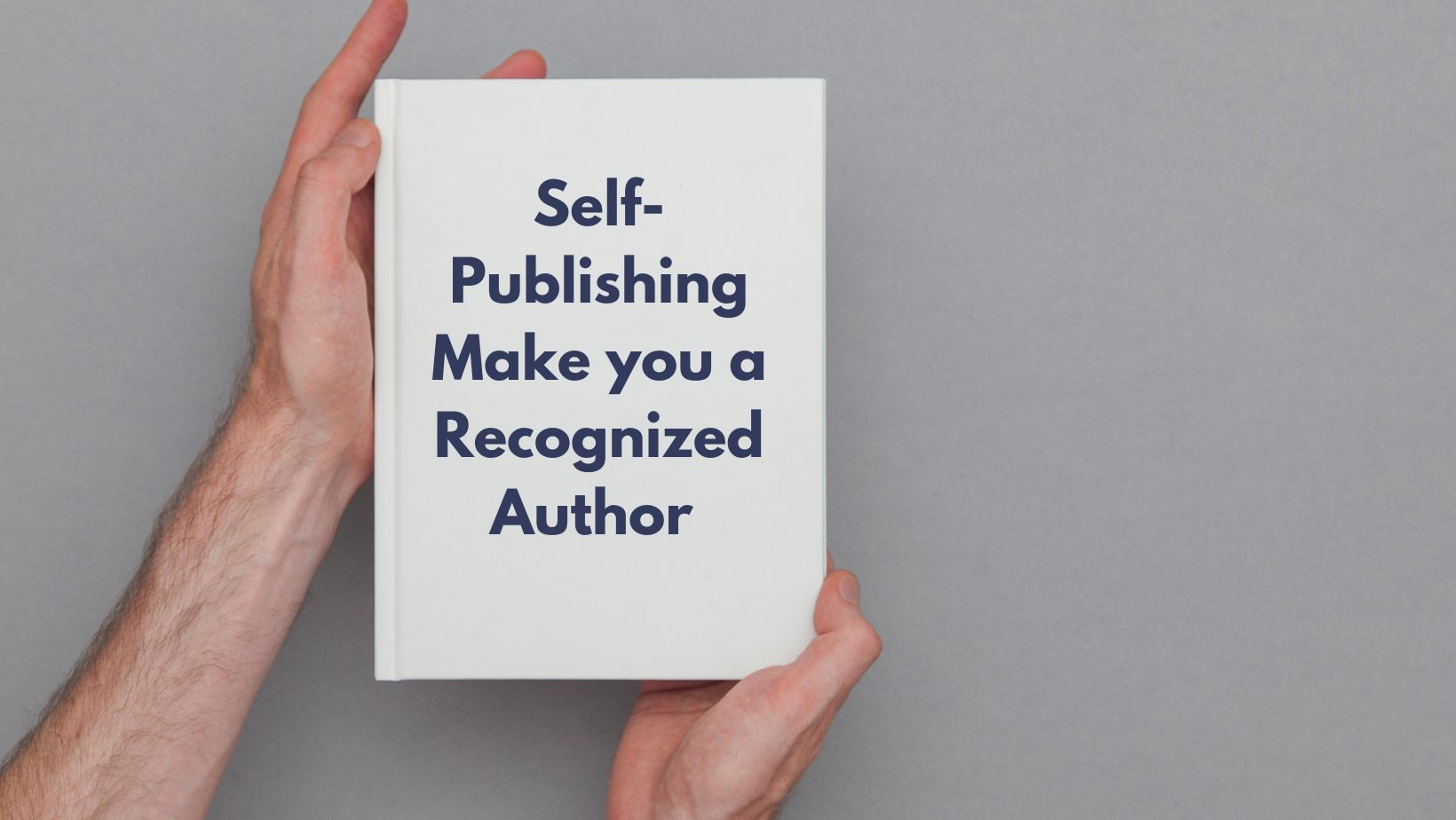The definition provided by the Oxford Dictionary clarifies that being published refers to the preparation and issuance of a book, journal, or piece of music for public sale or readership. Therefore, as soon as an author makes their book available for people to read or purchase, whether online or through other means, they can be considered a published author or a recognized author.
There is a prevailing myth that self-publishing cannot lead to recognition as a legitimate author. In this blog, we will delve into the truth behind this notion and explore whether self-publishing can indeed pave the way to becoming a recognized author. Join us as we debunk the myth and shed light on the factors that contribute to a recognized author in the ever-evolving world of publishing.
Table of Contents
Difference in Traditional & Self-Publishing

While traditional publishing houses still carry prestige, self-publishing and online publishing offer authors increased creative control and flexibility. Authors can bypass the need for literary agents or binding contracts, retaining the rights to their books. This allows them to publish and sell their works in any format and market. Moreover, self-publishing provides higher royalty rates, with self-published authors earning between 35% and 70%, compared to the 5% to 25% typically earned by traditionally published authors.
Concept of being Published
Traditionally, it meant having your work accepted by a publishing house, edited, and released in physical forms such as books or magazines. However, in today’s context, being published means that your work is available for purchase in digital or print formats, regardless of whether it goes through traditional publishing houses, self-publishing platforms, or online publishing platforms.
Changing Landscape of Publishing
The traditional publishing industry has undergone significant transformations in recent years, thanks to the rise of self-publishing platforms. Authors no longer need to rely solely on traditional publishing houses to bring their work to the masses. Self-publishing has democratized the process, allowing authors to retain creative control, publish on their terms, and reach a wide audience without the need for a traditional publishing contract.
While self-publishing offers freedom and flexibility, it does come with responsibilities. One crucial aspect is ensuring that the published work meets high standards of quality. Professional editing, proofreading, and cover design are essential to create a polished product that can compete with traditionally published books. By investing in these aspects, self-published authors can enhance their credibility and increase their chances of being recognized as serious contenders in the literary world.
Self-Publishing gained Popularity
It allows authors to bypass the traditional publishing process, granting them greater control over their content, cover design, and pricing. Platforms like Amazon’s Kindle Direct Publishing and IngramSpark enable authors to sell their books on major online retail platforms like Amazon, Barnes & Noble, and Apple Books, leading to increased exposure and potential sales.
However, self-publishing comes with its own set of challenges. Self-published authors are responsible for all aspects of their book’s production, including editing, cover design, formatting, and marketing. Additionally, self-published books may be perceived differently in terms of validation and prestige compared to books published by traditional publishing houses.
A Digital Alternative to Traditional Publishing
Platforms like Medium, Substack, and WordPress enable authors to publish their work online and reach a wide audience. These platforms often offer monetization options, such as subscriptions or pay-per-view, allowing authors to directly earn money from their content. Online publishing is an attractive option for writers who prefer the convenience of digital distribution and want to avoid the complexities of traditional publishing.
However, similar to self-publishing, online publishing comes with its own set of challenges. While it is relatively easy to publish work online, attracting attention and building a readership can be a slow process. The abundance of content available on online platforms necessitates a robust marketing strategy to stand out and attract readers.
Can Someone be an author by Self-publishing or Publishing Online?

Self-publishing and online publishing platforms have opened doors for aspiring writers to showcase their work to the world. Gone are the days when traditional publishing was the only path to authorship. With self-publishing, authors have the freedom to bring their stories to life, retain creative control, and reach a global audience. By leveraging online platforms, writers can bypass the gatekeepers and directly connect with readers. So, if you have a story to tell, don’t let the traditional publishing route limit you.
Embrace self-publishing or online publishing and embark on an exciting journey as a recognized author. Being a published author is fundamentally about making your work available for others to read. Whether you choose to self-publish or online publishing, you have taken the initiative to create something that can be enjoyed by readers. It is important not to let anyone undermine your status as a published author simply because you did not follow the traditional publishing route.
Summary
Self-publishing does not inherently preclude authors from achieving recognition. While the path may be different, self-published authors can indeed become recognized and respected figures in the literary world. By focusing on producing a quality product, implementing effective marketing strategies, and nurturing a strong author brand, self-published authors can elevate their visibility and credibility, ultimately gaining the recognition they deserve.
The key lies in embracing the opportunities that self-publishing offers, leveraging digital tools and resources, and consistently delivering exceptional work that resonates with readers. So, aspiring authors, fear not – self-publishing can be a stepping stone to becoming a recognized author in today’s dynamic publishing landscape.
Self-publishing and online publishing have expanded the possibilities for authors to share their work with readers. While traditional publishing still holds some prestige, self-publishing and online publishing offer benefits such as creative control, flexibility, and higher royalties. Regardless of the chosen method, authors can rightfully consider themselves published authors. What truly matters is that their work is accessible to others, allowing readers to discover their talent and creativity.

